I often consider the world to be a Buddhist test. I pride myself to be able to wish everybody well — regardless. This time I failed that test. Not only did I get pissed — I relished the feeling of righteous anger.
You see, I got ganged up on in Twitter. I was bullied as a child and really really don’t like being ganged up on. Then a crowd of boys pushed me down the steep hill that was behind the elementary school playground. This time it was retweets and likes on a homophobic Bible verse that was sent to me. It did not matter that this was a Christian gang. I still got pissed.
I read and reread the verse. It was from Romans and part of it reads: “…for even their women did change the natural use into that which is against nature: Likewise also the men, leaving the natural use of the woman, burned in their lust toward another.”
First of all, the “natural use of the woman” — really?!
Secondly, this verse tells us that there were LGBTQ people in Biblical times. Of course, we knew that, but this confirms that our tribe was there.

If anything, this Bible verse (which I have seen before) should be ignored. It also points out the necessity of re-writing the Bible which I did in THEY, a biblical tale of secret genders ( Adelaide Books).
I was ganged up on by this virtual mob during Pride. My first thought was shame, shame, shame. This is what we used to say during the LGBTQ Pride March in NY where we used to stop and point at the religious right people protesting the parade and chant back at them.
Shame on you for trying to make me feel bad about myself. And shame for trying to make a whole group of people feel bad about themselves. What’s the point? Usually, homophobia has a fair amount of twinkle, twinkle (what you say is what you are) in it.
This is what I thought at first. But then I started to wonder what makes a homophobic right religious person tick. For surely by driving people away from the church — it isn’t self preservation.
So I went to the major offender’s Twitter page and the first thing I saw was a donation button. Ah, money, I thought. That’s what they’re thinking. Then I saw a video about the migration of a certain Bible from Scotland to a recent “presidential” photo op in front of the church near the White House after the protestors in the street were scattered with tear gas.
I loved it when I saw that Mitt Romney was marching in the street with the Black Lives Matter protestors. He was marching with a group of evangelical Christians who were singing “This Little Light of Mine.” Even if they came late to the party, they came. And even if some of these folks still oppose LGBTQ rights — other evangelicals (usually younger ones) are secure in their sexuality and are more open minded.
On this Twitter page (of the person who sent the homophobic Bible verse) there is no mention of justice and no mention of Jesus. There is no mention of goodness.
There is no mention that those protesting George Floyd’s murder are right — and that they are bending the moral arc of history toward justice.
We are at a pivotal moment in history — but not to back the forces of hate.
The young people are shaping the world that they want to live in.
Listen to them.
They are not your enemy.
To learn more about my novel THEY, a biblical tale of secret genders (published by Adelaide Books New York/Lisbon), click here.

Read Full Post »

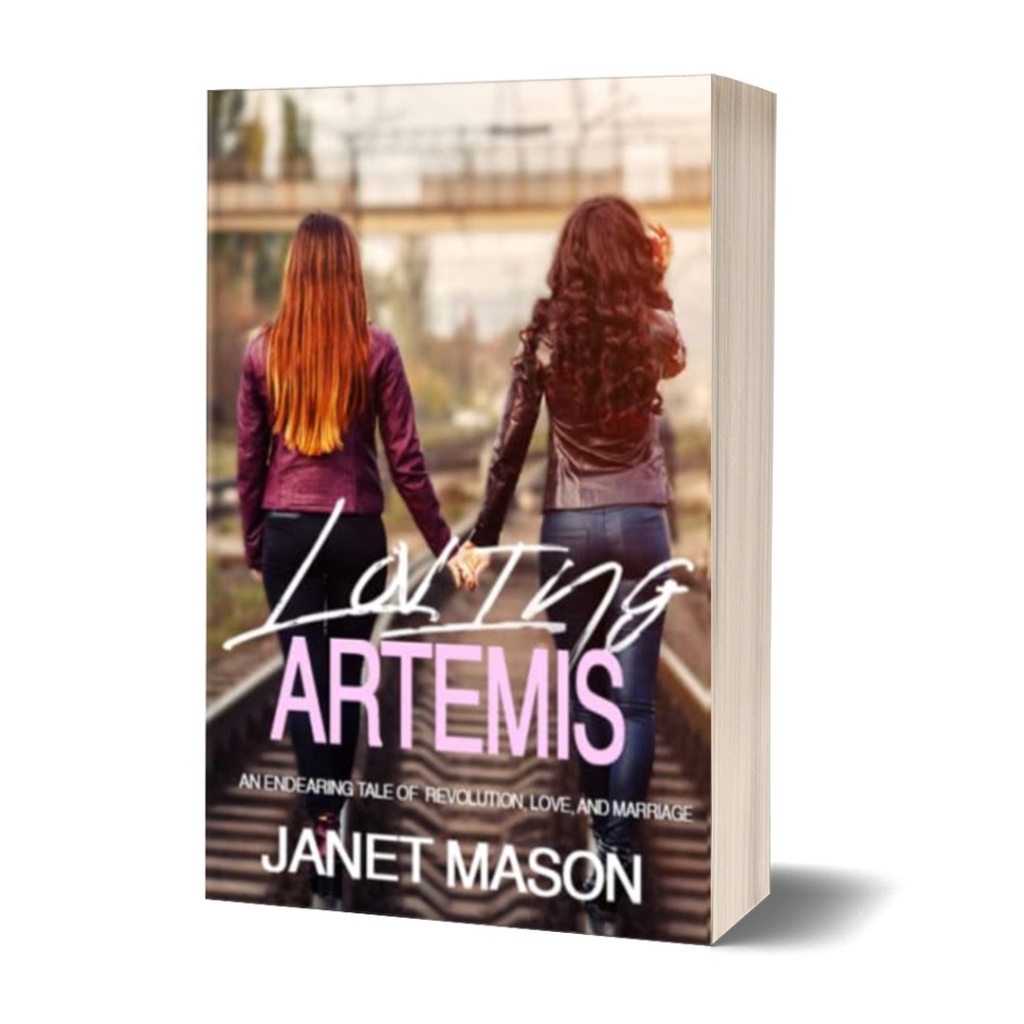








 A few years after Harvey Milk was assassinated, I attended the premier screening of the documentary The Times of Harvey Milk (the first movie) at the Roxy on Sansom Street. I was young then, in my early twenties, and recently out as a lesbian. I still remember sitting in the dark theater and listening to the crying of those around me – mostly gay men.
A few years after Harvey Milk was assassinated, I attended the premier screening of the documentary The Times of Harvey Milk (the first movie) at the Roxy on Sansom Street. I was young then, in my early twenties, and recently out as a lesbian. I still remember sitting in the dark theater and listening to the crying of those around me – mostly gay men.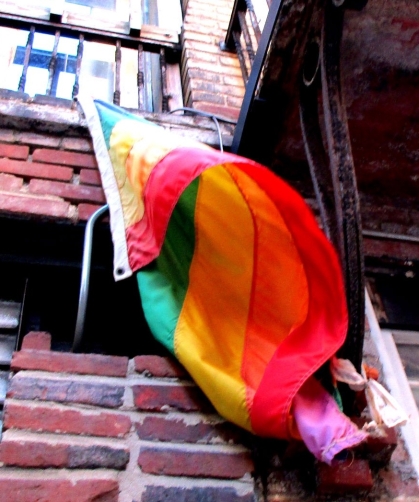 This year we celebrated Pride by going to see the lesbian musical Fun Home. The celebration started when my partner Barbara won free tickets from WRTI, the local jazz radio station.
This year we celebrated Pride by going to see the lesbian musical Fun Home. The celebration started when my partner Barbara won free tickets from WRTI, the local jazz radio station.
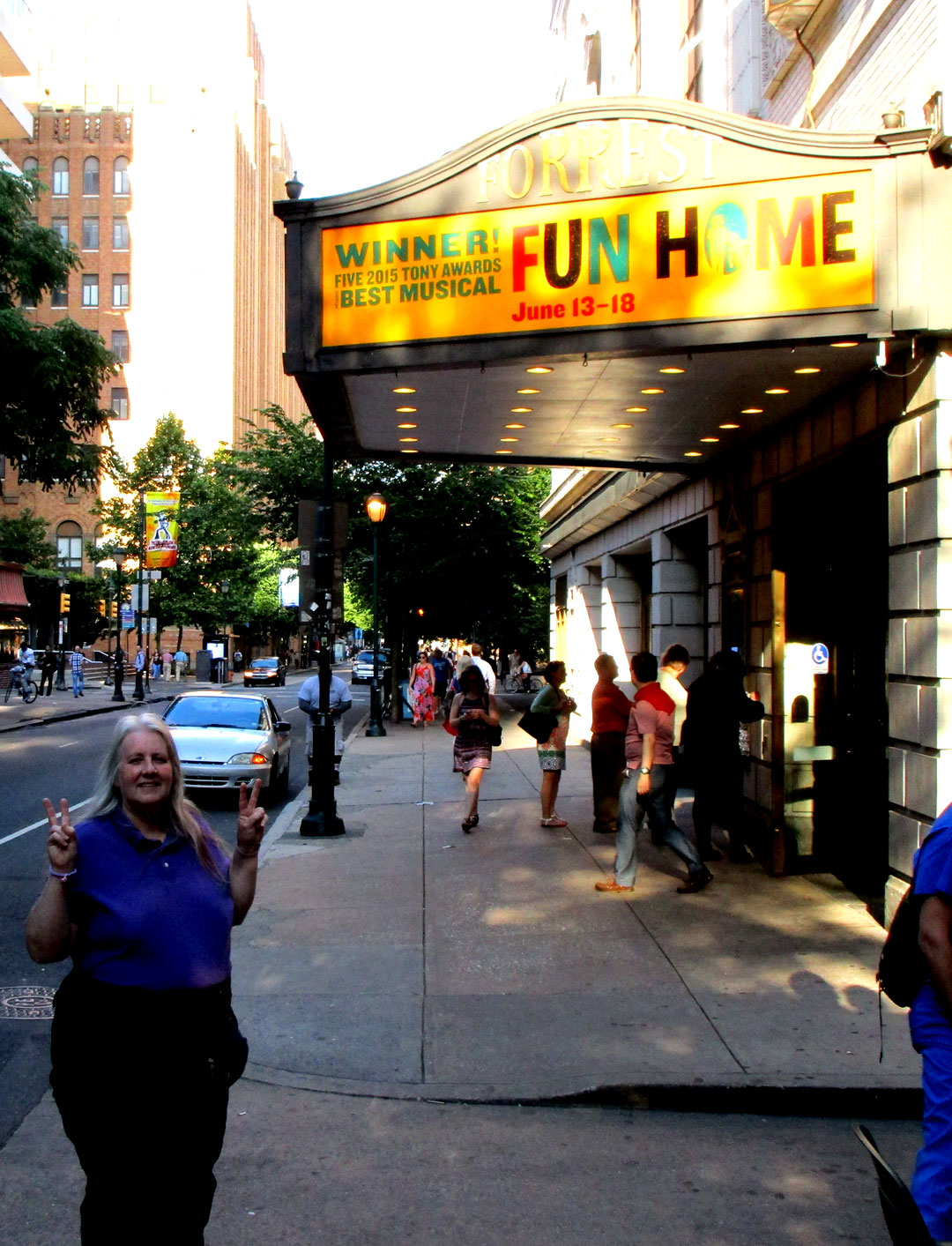

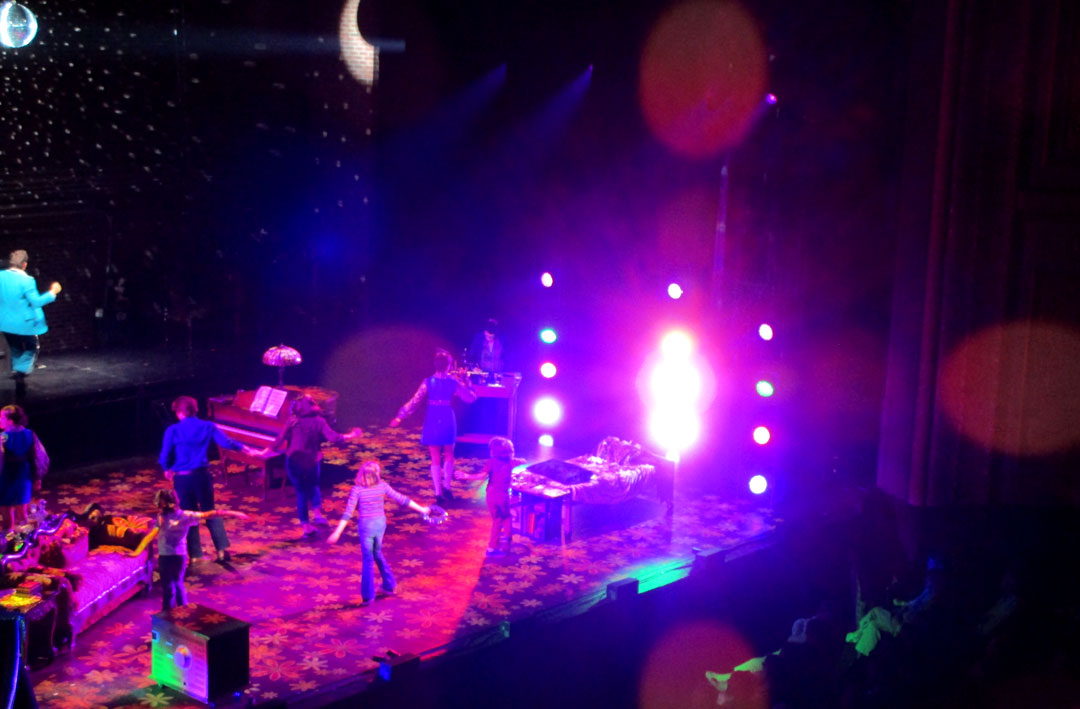
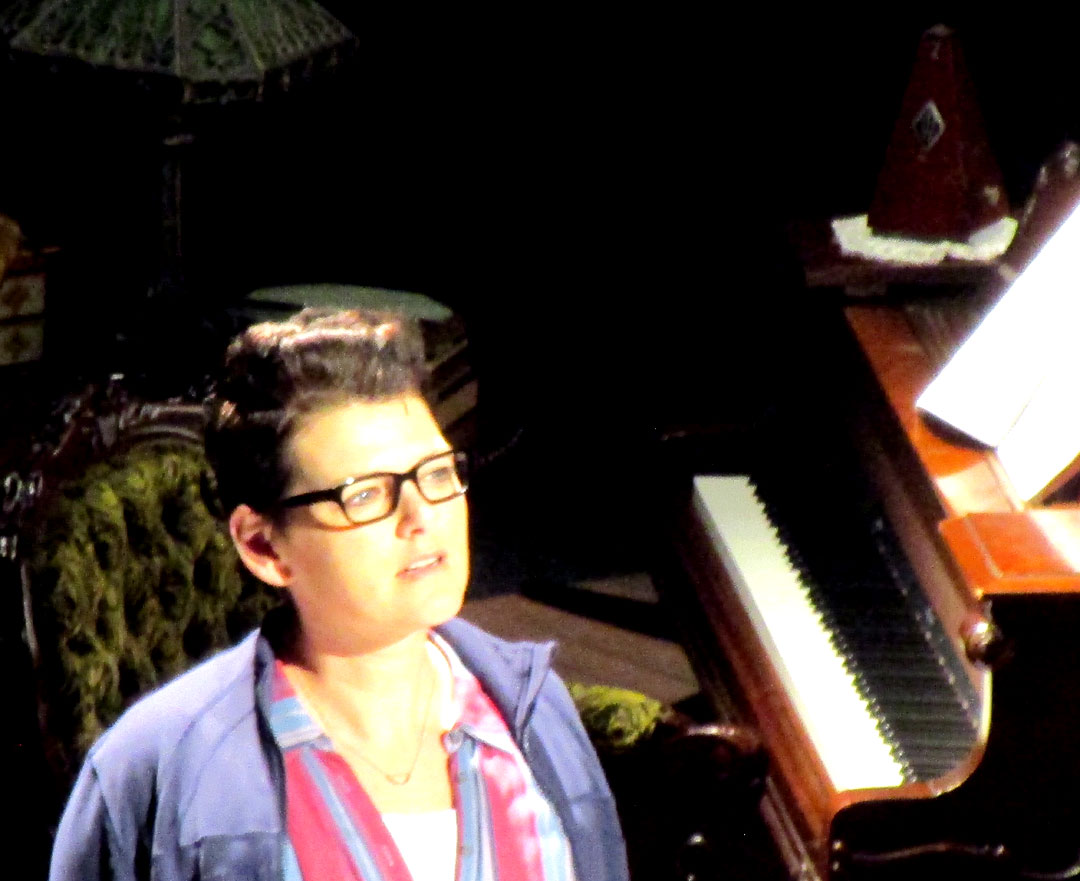
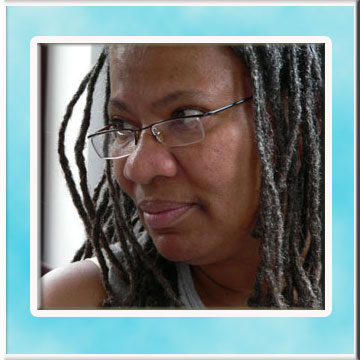 Toni was a wonderful poet and writer and you can hear her read her work by
Toni was a wonderful poet and writer and you can hear her read her work by